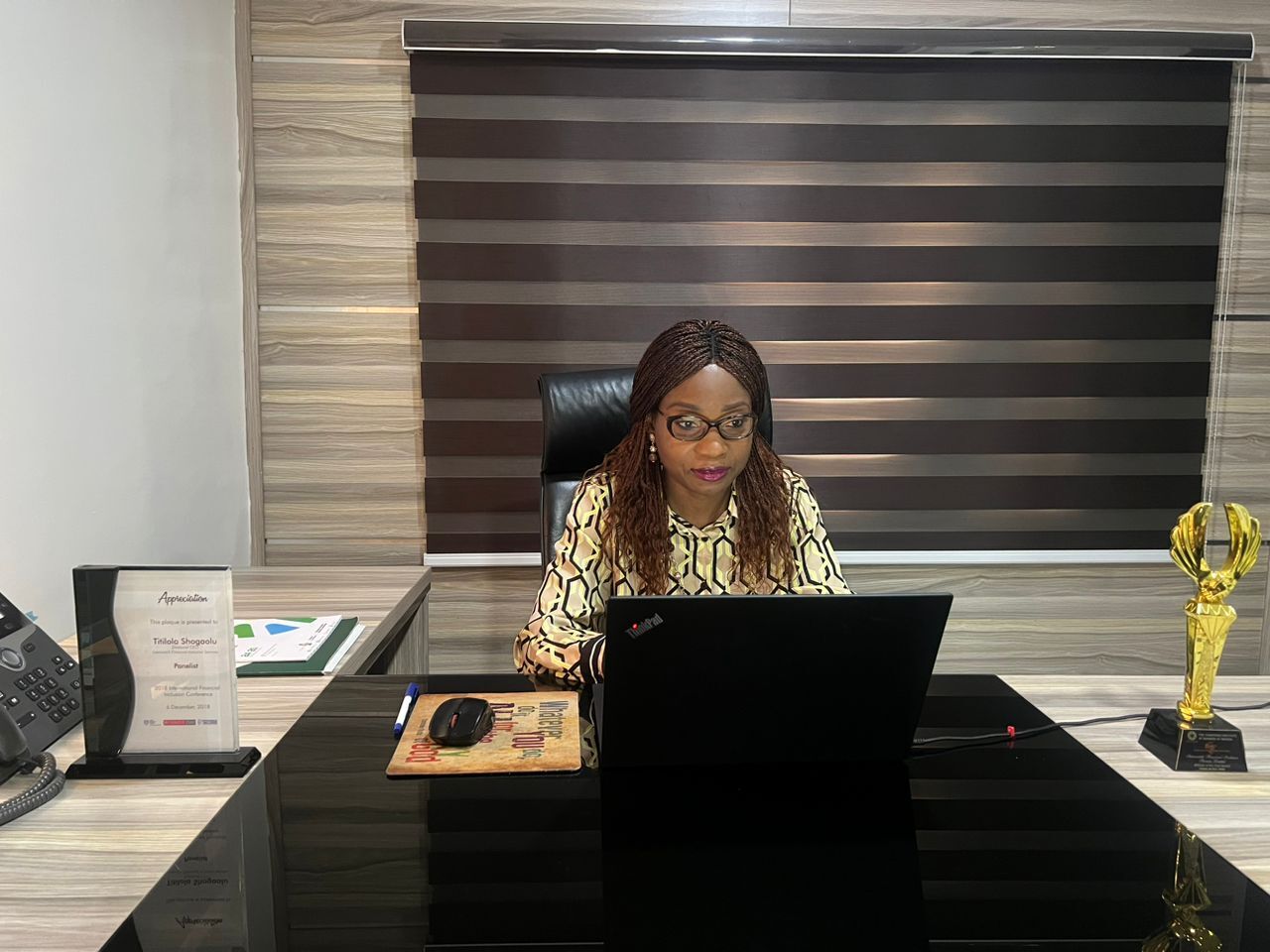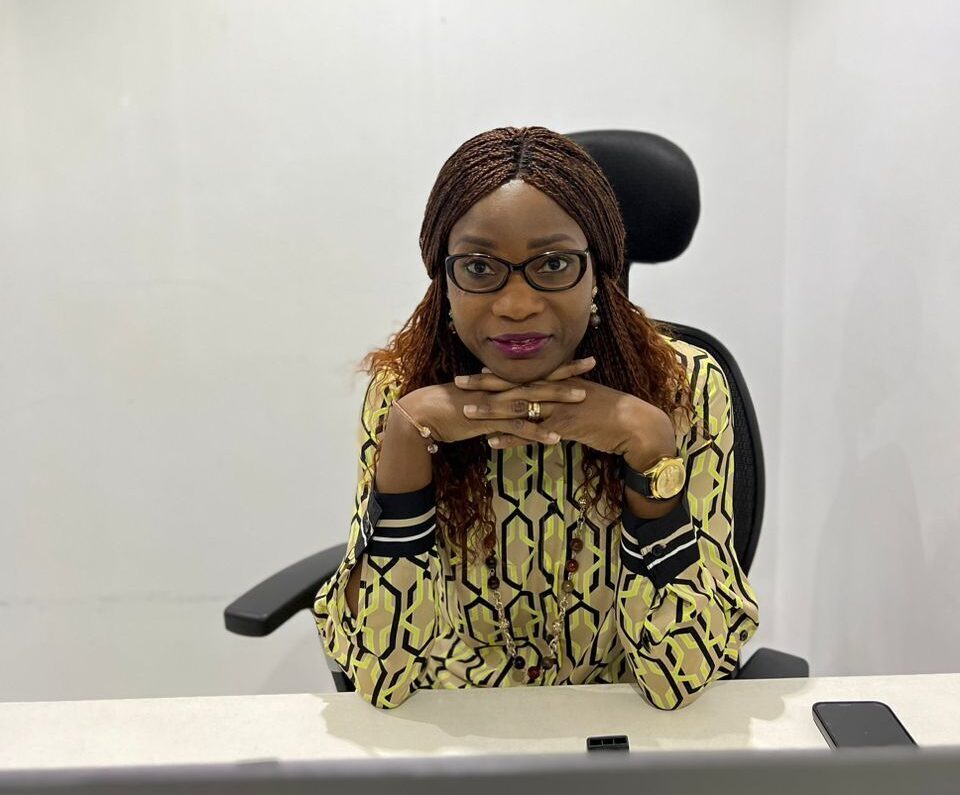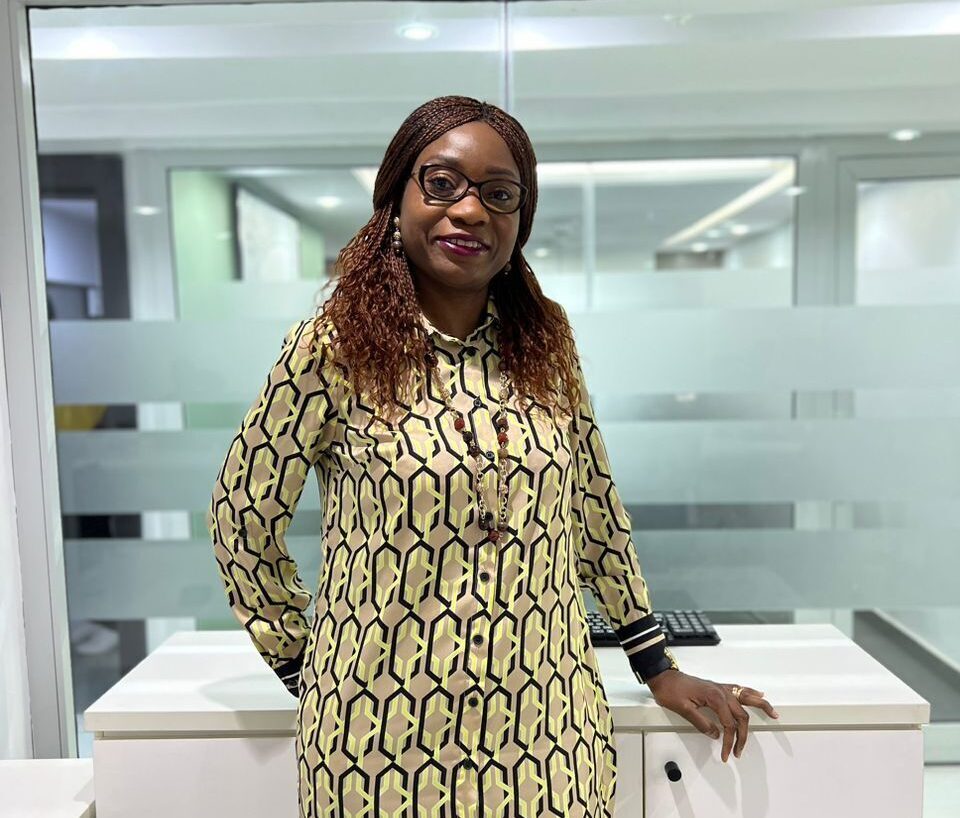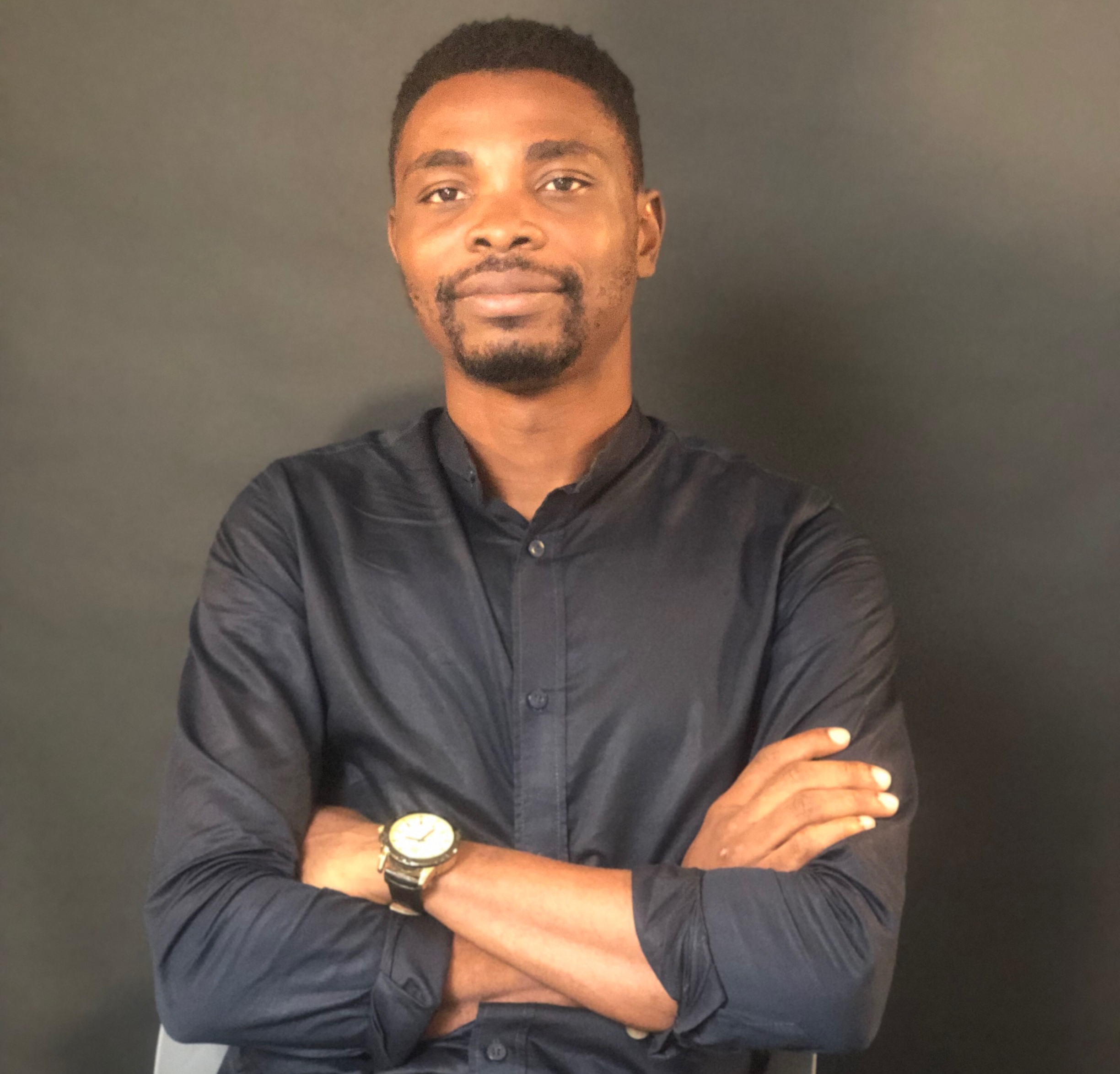Leading the Charge in Financial Inclusion at Africa’s First Unicorn: Titilola Shogaolu’s #SwitchStory

Over 20 years ago, Titilola Shogaolu cut her teeth in the banking industry as one of those charting a course that would redefine the industry's future, a future she now leads as the MD of Interswitch Financial Inclusion Services (IFIS). But long before that, she had worked at the intersection of trade and commerce at a young age, setting the stage for her interest in the business of payments.
In this edition of #SwitchStories, we go back in time to explore Titilola’s career journey, and how it has shaped her life and interests over the years.
What does your job role as the MD of IFIS entail?
I drive the financial inclusion aspiration of the company, providing guidance, leadership, support and strategic direction in the execution of our activities. My role also entails positioning the agent channel as a complement to other channels (bank branch, web, mobile to drive revenue collections and make available value-added services through our Quickteller Paypoint agents located across the country. Another key aspect of my role is collaborating with other functions to motivate, reward, and organize people resources to achieve the set business results and targets, whilst ensuring the business complies with various regulatory guidelines.
Tell us about your career journey. What motivated you to pursue a career in financial technology, and how did your journey lead you to Interswitch?
I studied Business Economics in the university. After that, I did my MBA and came back to Nigeria with the intention of doing my National Youth Service and finding a good job. I was posted to a bank for youth service, where I worked in the e-payment division managing their flagship “Flash Me Cash” Mobile-based solution and internet banking. These solutions were new in the industry at that time. That was how I got started with “fintech”. Although I was working in a bank, I was not in the mainstream—"go and look for customers and bring deposits,” which was a plus for me. I was exposed very early in my career to working with cross-functional teams, executive management and was part of the team delivering the “future” of the banking industry as envisaged by the Managing Director of the bank at the time.
After leaving the bank, I was looking for a “non-banking job.” Most opportunities were in the banking sector and related to getting people to “bring deposits” and I didn’t want that. So, I turned down the banking offers I received at the time and accepted the Interswitch offer in June 2004, and I have stayed the course for 19 years.
At the time of accepting the Interswitch offer, the salary was much lower than what the banks were paying at the time, I was aware Interswitch was offering solutions to the banks to facilitate processing transactions primarily via the ATM channel in the first instance. That was the part of Interswitch that was visible and known to me.
I was also aware that the company size was much smaller, the level of interaction would be close, and I would be involved in doing things that shaped the processing of financial transactions. The location of the Interswitch office was ideal for me. So, I decided to try it out and give it my best shot.
What do you find most rewarding about your job?
The fact that the work I do is value-adding. For example, we are contributing positively to the financial services sector and across various industry segments where our solutions/platforms are at the core of different revenue collections. The fact that through our agent network, Quickteller Paypoint, we have created employment opportunities, created avenues for people to become entrepreneurs, brought access to financial services closer to people in various communities and enabled our agents to be socially relevant in the communities they serve.
You have been part of Interswitch’s growth journey for about 20 years, what inspired your long service at The Switch?
Leadership is one. I had exceptional bosses, who pushed me during my early years at the Switch. Another thing is the work environment and having the opportunity to work in various roles, functions and in various capacities, learning, growing, and doing meaningful work. Finally, the valuable relationships built within the Switch, the payment ecosystem, and the different industry segments we serve at various levels has contributed to the long service at the Switch.

How is The Switch different today from when you first joined?
It is different in some areas however the culture in some other areas have remained the same. With regards to differences, first of all, I’d say the size. We were just about 16 people in 2004 when I joined operating only in Nigeria (Lagos) but today we have operations in Kenya, Uganda, Gambia, DRC, USA, and regional hubs in different states in Nigeria. And perhaps over 1,000 employees. There was just one building, Building 1 on Oko Awo at the time I joined but today there are nine Interswitch buildings on the same street. Interswitch’s ownership structure has changed from being owned by banks to ownership by PE firms.
It was such a humble beginning in 2004 when I joined, that the two company cars we had then doubled as official cars for Akeem and Charles, who were leading the Engineering and Business teams of Interswitch, respectively. During the day, the two cars would be available for the Sales or Project Implementation team for business meetings at clients site, before they both take the cars home after work hours. You had to drive yourself to the client’s site for your meeting after booking the car for use. Now, the company has since transitioned to the use of ride-hailing services on an enterprise level. Middle managers and above are also now provided official cars.
Also, we had relatively few products and services at the time. It was largely selling connectivity to the Switch (ASP or FEP) to the banks and following the consolidation in the banking industry to 25 banks, we began to provide collections, disbursement, and online solutions. Today, there are many more solutions with a focus on different market segments.
Just to mention a few, some aspects where the Switch culture has remained the same from 2004 till date, the support when a staff member has a celebration (e.g. wedding) or suffers the demise of an immediate family member). It does not matter where the event will be held – Lagos, outside Lagos, outside Nigeria, the company ensures that there is representation at its own cost. The team of the staff also supports. The comrade spirit is felt on such occasions. End-of-the-year gifts remains a ballot irrespective of your level, every single person in the organisation gets to benefit.
What’s your most memorable day at The Switch?
It was the day when the very first payout was done—the Employee Share Option Scheme also known as VETIVA. The atmosphere in the Switch that day was something else. It was a case of all the "talk talk" had now become reality.
I remember I was a Group Head in the Sales Network team at the time, responsible for sales of our solutions and account management for some industry segments— Power, Education, Government, Transport & the likes. Usually, when a salesperson wins an award letter, there is a bell that would be rung to announce the new win.
That day, the bell was rung for VETIVA’s actualisation and there was jubilation in the company. Depending on the length of stay in the company, when each individual approached and rang the bell, the screams, shouts and dances were heightened. I remember calling an ex-colleague that day to say “the passion/mission talks” that were preached to us when he was still here has finally manifested.
From your perspective as the MD of IFIS, how would you assess the overall progress Africa has made in its journey towards financial inclusion, and how is Interswitch helping to advance that progress?
The continent has come a long way in its journey towards financial inclusion and there are still opportunities to be harnessed. Here at Interswitch, we have established agent networks working towards advancing the financial inclusion objectives set by us and our regulators across Nigeria, Kenya, and Uganda. We have made some remarkable progress around having financial access points closer to people. Employment opportunities through the creation of financial inclusion partners—field teams across the 36 states in Nigeria & FCT and indirectly through shop attendants and sales associates that the agents employ to man their locations.
We have also helped our clients improve their revenue collection process and made it convenient and easier for customers to make payments through our Quickteller Paypoint agent network. Unbanked and under-banked customers can open Tier 1 bank accounts at our agent location as well.

What’s something you wish you knew earlier in your career/life?
The power of networking and developing relationships outside work.
Beyond your job at Interswitch, what are your interests or hobbies, and how do they contribute to your overall wellbeing?
I enjoy vacation time with my family, hanging out with my spouse, children, siblings & parents. From time to time, I attend events too. It could be an engagement or wedding, birthday, naming ceremony, child dedication or church function. I could do with a good movie on Netflix, ShowMax or Amazon Prime as the case may be. From time to time as well, I do some online shopping.
If you were not currently in this career line, what would you be doing?
I would probably be buying & selling goods. That is, be a distributor for some FMCG companies or work in the family business.
Why buying and selling?
As a child and teenager, through my primary and secondary school years, I was privileged to always work in my father's company during weekend, holidays, and mid-term breaks. It was my parents’ principle that "you need to make some money before you can spend money". I also attended various trade fair exhibitions (Tafawa Balewa Square, Trade Fair complex, Ojo, City Hall) selling and marketing the company products at their booth. I worked in various departments at my parent’s manufacturing company performing administrative tasks, quality control checks on the production lines, bagging items at the end of the production line, packing items, taking inventory and signing them into the store. Back in the days, my father would dictate points to be written and sent as fax messages to suppliers and partners of the company in Italy, Spain, the UK, and Belgium. I also helped to solicit feedback on new products, existing products, competition reviews/benchmarks.
In addition to that, I was trading in the company stores at Idumota and Docemo Street in the heart of Lagos. I would visit distributors & retailers for feedback, observe product placement in their stores & provide a report to the marketing and sales team, my mum was a distributor for various FMCGs at the time. I would attend meetings with her, place orders, accompany the van to pick up the products ordered and then sell the products at her shops to Nigerian and non-Nigerian customers. They were mostly Chadians, Nigeriens, Malians and Ivorians who bought products here and shipped them to sell in their country. This was my early exposure to buying and selling in the heart of Lagos.
This early exposure to business actually helped me get a sense of some of the challenges affecting commerce in this part of the world. And these are the challenges we are solving with our work on financial inclusion.
What’s one piece of advice you would typically give to the people here at The Switch?
Once you get into The Switch, volunteer. Put yourself out there. Work on projects. Cross-functional projects. The Switch is always sending out notifications, looking for people to suggest ideas, participate in hackathons, test, and provide feedback on new solutions. There are always challenges to be resolved or a process to improve, how can you help by being a conduit or channel of solutions within your team and outside your team?
You never can tell, at some point in time, an opportunity may emerge and then your name would be mentioned. That way, you are building connection and credibility. And who knows, anything can come out of that. So, I will say, be out there.
Also, during the onboarding process, various information about the organization, the structure, the different businesses, and the policies are shared. I think it is good to take those early days very seriously so that you understand and imbibe what has been shared. It's a lot of information that comes at you, but over time, you can always go back to consult all of these materials so that you are sure that you are acting within the framework that the company has provided.
